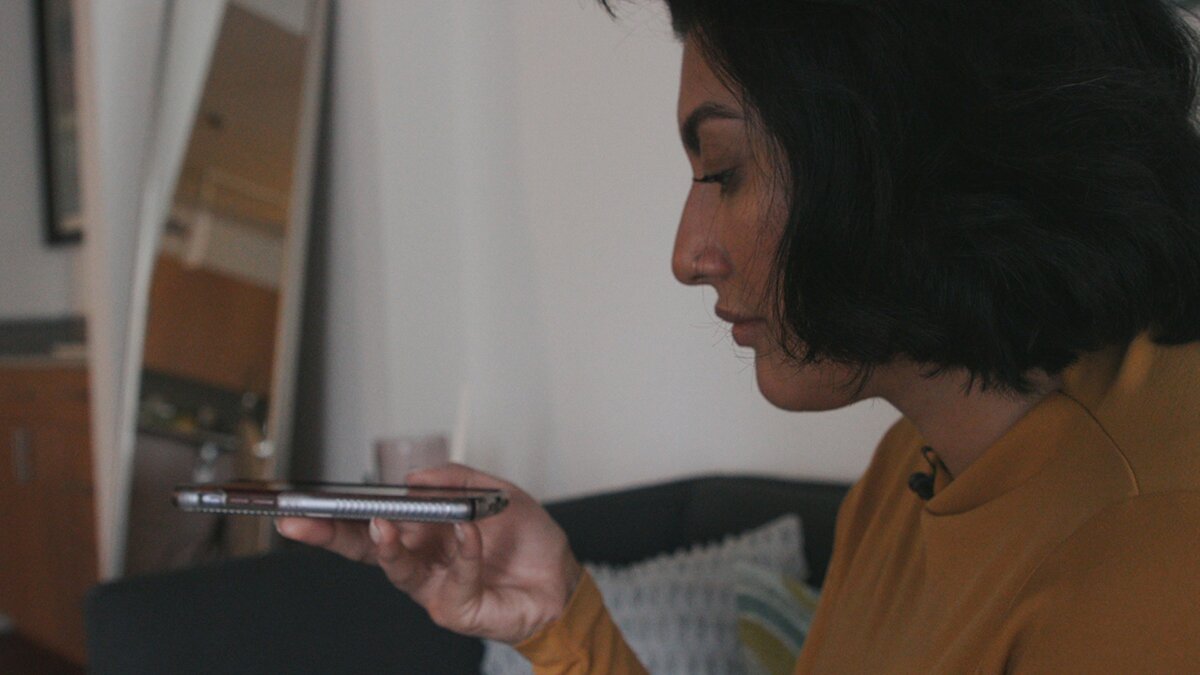'Please help': The desperate plea of an Afghan woman

DENVER — Hosnah Safi, a first-generation Afghan-American living in Denver, sits on her couch. Her eyes are sad, her expression is hopeless. She holds her phone in her hand, and presses play.
A woman’s plea comes through the phone's speaker. You can hear the quiet desperation in her voice. She speaks in Farsi and Safi translates.
“Hi from Afghanistan. Please listen to us, please send up help. The whole world knows the Taliban has taken over. Things have gotten very bad here. We haven’t had electricity for the last week. We are so afraid when it comes to how we’re going to find food to eat. We haven’t eaten in almost three days, and don’t have a male escort to help us go and get anything else to eat. I’m willing to leave my homeland and everything behind, we just really need some help. Please help.”
The words “please help” are in English. And it’s a haunting message.
The voice belongs to a close friend of Safi. We’ve kept her name and location anonymous for fear of retribution from the Taliban.
“I want to reach into my phone and hug her and tell her we’re trying,” says Safi.
Safi can’t help but feel a little guilty hearing this plea. Her parents came as refugees in the late 1980s, fleeing similar threats from the Taliban who ultimately took over control of Afghanistan in 1996. Her parents spent three years as refugees in Pakistan before immigrating to the United States.
Sadly, many of their friends and family were left behind. While they thrived over the last 20 years, the lives they have created are now in jeopardy after this past weekend.
“In just the last few days the Taliban were able to take over our capital of Kabul [again],” says Safi. “I think this weekend if you ask any Afghan-American, it’s the weekend we lost where we’re from.”
Life under Taliban rule will be much different than what Safi’s friend is used to.
“She’s 25 years old, single, she lives with her 80-year-old mother. Her father passed away of COVID-19, so she’s been the one working and supporting herself and her mom,” explains Safi. “Before the Taliban she would go to the mall, they would dance and play music in their living rooms, and have house parties…within a weekend it’s already flipped upside down.”
The Taliban, a militant Islamist organization, is seeking to reinstate Sharia law throughout Afghanistan—a code of living for Muslims, originating in the Quran. Sharia, which means "the clear, well-trodden path to water" in Arabic, is arguably very strict and limiting for women.

Safi continues to play and translate the audio message.
“It’s not the same Kabul it was even a few weeks ago. It’s really dangerous and really scary, and you can hear the Taliban members driving. They’re going door-by-door and they’re taking away young men and forcing them to join their army and taking away young women and kidnapping and raping them and forcing them to get married to [Taliban members].”
Safi is doing everything she can to raise awareness, including posting on her social media platforms and planning to attend a global protest for Afghanistan, happening in major cities across the world August 28. She hopes a lot of people will attend.
“I have a favorite saying in Farsi that I really love. [Translated] it means ‘Drop by drop it becomes a river,'" says Safi. She hopes every post on social media, and every person that attends the march will contribute to a river that will “wash away the damage we’ve done to Afghanistan and just help them.”
Safi plays the end of her friend’s message.
“The phone lines are expected to be cut out here within the next few weeks, so this may be my only opportunity to ask for help. It’s getting really dangerous here and we’re feeling so hopeless. As a women I am officially jailed in my house. Please send help…”
The march for the people of Afghanistan will take place at the Denver State Capital on Saturday, August 28 at 6 p.m.
Resources
- NPR: The Simple Steps You Can Take Right Now To Help Afghan Refugees
- Women for Afghan Women
- International Refugee Assistance Project
Alexis Kikoen is a multimedia journalist for Rocky Mountain PBS. You can reach her at alexiskikoen@rmpbs.org.